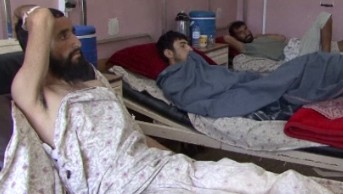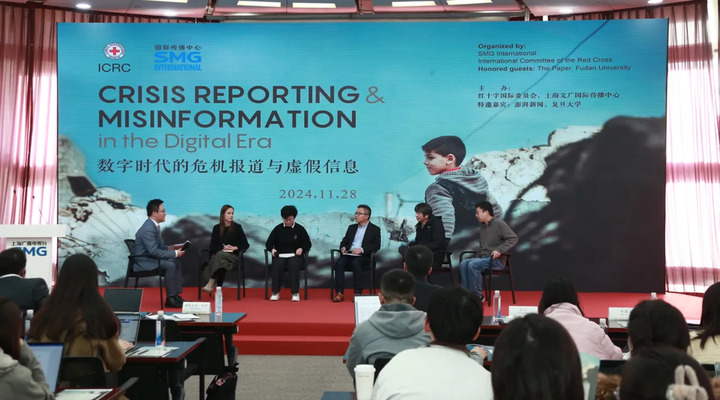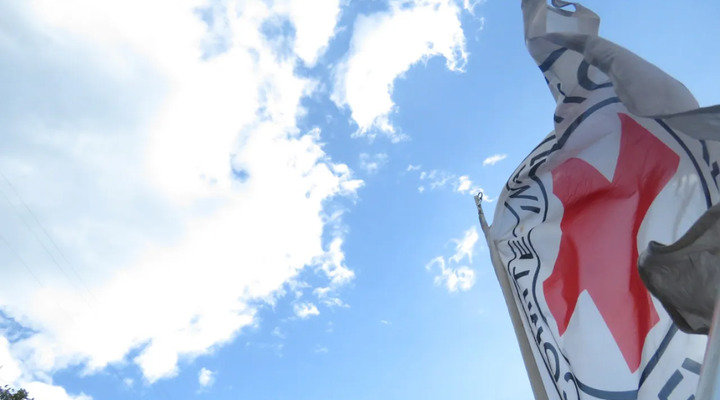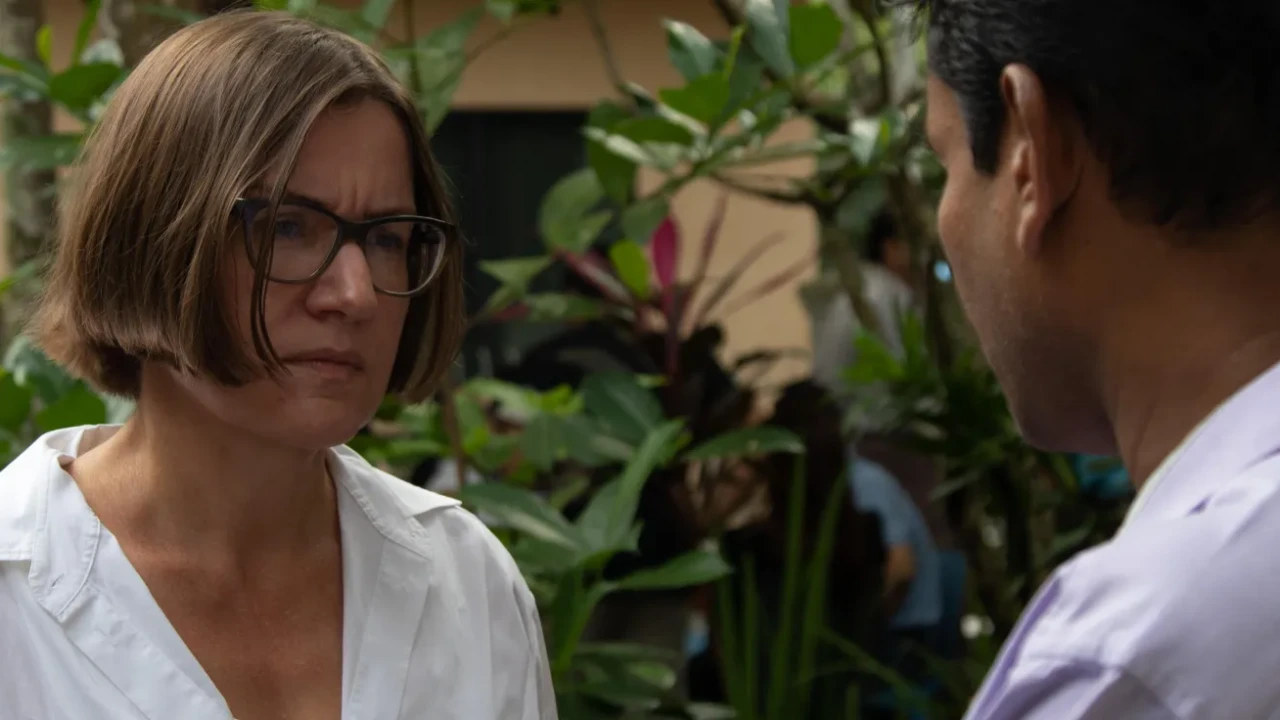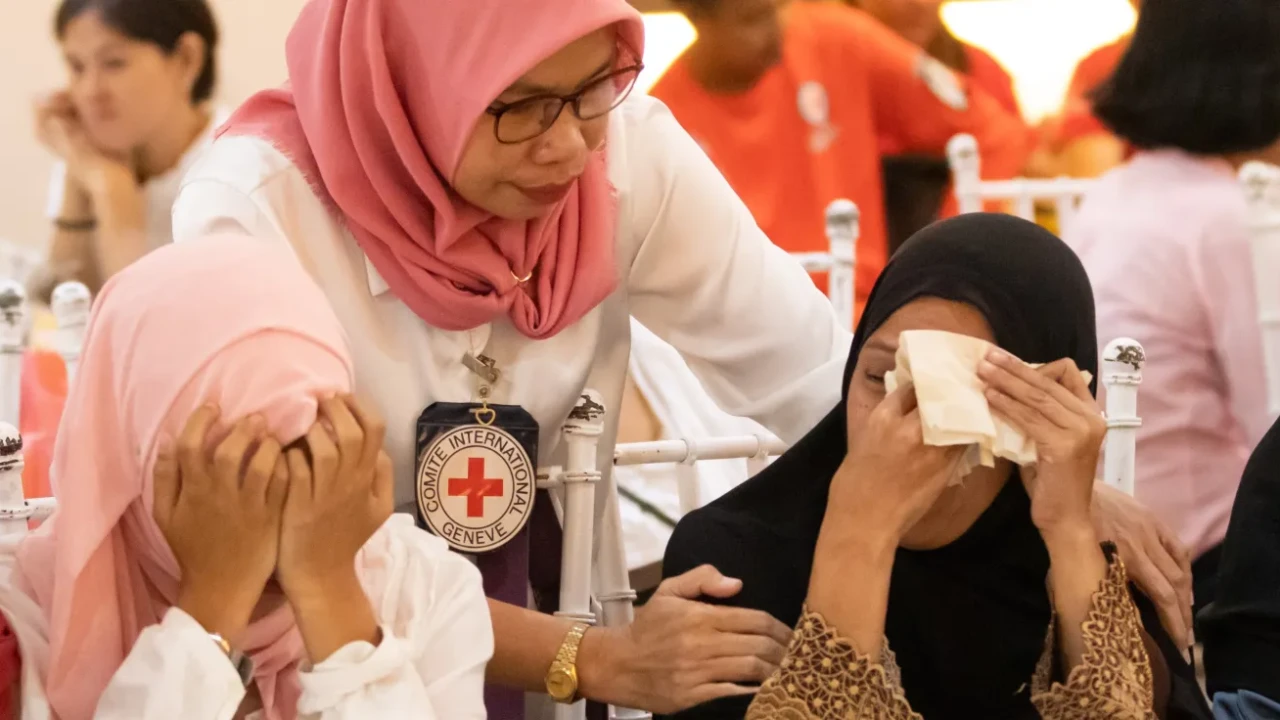Healthcare precarious for millions of Afghans
Ten years on from the start of the present conflict in Afghanistan, fighting is widespread, particularly in rural areas. International troops are starting to withdraw. At the same time, security is further deteriorating and local armed actors are multiplying.
In the wider context of 30 years of conflict in Afghanistan, the disengagement of international troops signals the beginning of a new chapter but Jacques de Maio, Head of Operations for South Asia at ICRC warns: "We expect more fighting, more armed violence, more bombs, more wounded, and more forced displacement."
Civilians must be spared the effects of the conflict and have access to adequate health care, says Jacques de Maio. Today, millions of Afghans struggle to reach treatment when in dire need. Many local clinics have closed because of fighting, attacks on premises or intimidation of staff.
In many parts of the country, to reach a hospital, the gravely sick endure checkpoint delays or long detours over mountain roads to avoid closed routes. Simply making the journey can be life-threatening as improvised explosive devices such as roadside bombs are a major killer of Afghan civilians.
Despite the difficulties and danger of reaching Mirwais Regional Hospital in Kandahar, patients stream in and the outpatient department is overwhelmed. This government-run referral hospital (427 beds, 500 staff) serves four million people in southern Afghanistan. The ICRC provides medical supplies and nurses, surgeons, gynaecologists, doctors and a hospital administrator to support the Ministry of Public Health staff.
18 year old Hasti Khan was at a wedding when there was an air strike on his village in Helmand province. He and two others were wounded. Fighting continued throughout the night and Hasti was stuck. He and his brother Abdul Qadir had to wait until first light before they could leave for a hospital and even then the journey was extremely difficult. There are no ambulances, and taxis often refuse to travel certain routes or charge exorbitant prices due to the danger. Abdul Qadir explains: "Landmines are hidden all over the place and the roads are blocked from many directions. It is so difficult. Unless you are on the verge of dying, you don't risk the journey to the hospital." The most direct road to Mirwais hospital was closed because of improvised explosive devices. Abdul and Hasti had to take a long detour and change taxis five times during which Hasti fell unconscious.
Across from Hasti's hospital bed lies 18-year-old Kabir Jan. His leg has just been amputated. Kabir's uncle, Agha Badar, explains: "My nephew was walking in a garden when he stepped on a landmine. Still conscious, he called out for help but people were too scared of other mines to come to help him." Kabir tied his leg up with his shawl and checked the ground all around him. Then people came forward to help.
"His face was totally yellow," remembers his uncle. "When we arrived here the doctors told us his situation was critical." In the remote area of Maiwand where Agha Badar and his nephew live, it is impossible to get treatment. The nearest main road is a two hour walk away. "There are no clinics, no supplies or doctors near us. If you are injured, you have to go to Pakistan or come here," says Agha.
23-year-old Rosia is a mother of three. When she was bitten by a snake, her hand swelled up massively and became painful but she didn't try to see a doctor. There has been intense fighting in her village in recent months and travelling entails great risk. She also could not afford to travel from her village in Panjwayi to Kandahar. However, when she began to miscarry her fourth child, her condition became so serious that her sister, Jamila, persuaded Rosia to seek medical help. But they were blocked on their way to hospital. Jamila says: "The police would not allow the car to go through. The way was blocked in three places. Her baby was already dead. After an hour, they let my sister's car go through but then they made us wait another 3 hours. What could we do?"
Nurse Alia Kuchi works in the crowded children's ward where there are often 3 children to a bed. Over the past year, the high rate of malnutrition has increased in Southern Afghanistan. Many of the children in the ward fighting an illness or recovering from an injury are further weakened by malnutrition. Routine vaccination sessions in clinics and health centres have been disrupted and seasonal epidemics, such as measles, have risen significantly in conflict zones across the country.
Nurse Alia says many patients arrive in grave conditions because of the delays they face trying to reach the hospital: "People can't leave their homes because the roads are blocked. It's so difficult to bring patients to hospital in an emergency. By the time they do manage to get through, they are often close to death. The mothers don't tell us how they manage to get here but they look exhausted. You see it on their faces and their children sick and near death."
As international troops withdraw, ICRC's Jacques de Maio called on all actors engaged in the conflict to respect international humanitarian law. "When they continue to carry out military operations, the law of war needs to be respected. Prisoners need to be treated correctly and civilians spared the effects of the conflict." He also called on the international community to continue to support the Afghan population, and the country's infrastructure.
Facts & Figures:
- Afghanistan is the ICRC's biggest operation in terms of resources committed. The organisation has nearly 1,600 national staff and 142 expatriates based in its main delegation in Kabul and in five sub-delegations and 10 offices countrywide. In addition, it operates seven physical rehabilitation centres.
- The ICRC provides medicines and medical support to Sheberghan Hospital in the north and Mirwais Regional Hospital in the south, both of which are run by the Ministry of Public Health.. The ICRC also provides technical and financial support and medicines to 46 Afghan Red Crescent clinics, and to community-based first-aid volunteers who deliver health care to people in conflict-affected areas. In addition, the ICRC runs four first-aid posts, one in the west and three in the south.
- During July and August,Mirwais andSheberghan Hospitals admitted almost 6,400 inpatients and held nearly 3,1000 outpatient consultations between them. More than 1,700 surgical operations were performed in the two hospitals. In addition, during the same period, theICRC:
- distributed kits to the front lines to treat people injured in the fighting
- provided first-aid training for 168 combatants, doctors, police and community-based first-aid volunteers
- Delivered drugs and non-medical items to the 46 Afghan Red Crescent clinics as well as to three additional health clinics in the south and east once a month
- Continued to run four first-aid posts, one in the west and three in the south
Video 1 - Images from Mirwais hospital + patient soundbites.
Video 2 - More from Mirwais hospital + ICRC soundbite.
2 B-Rolls available to preview and download with the Dopesheet
